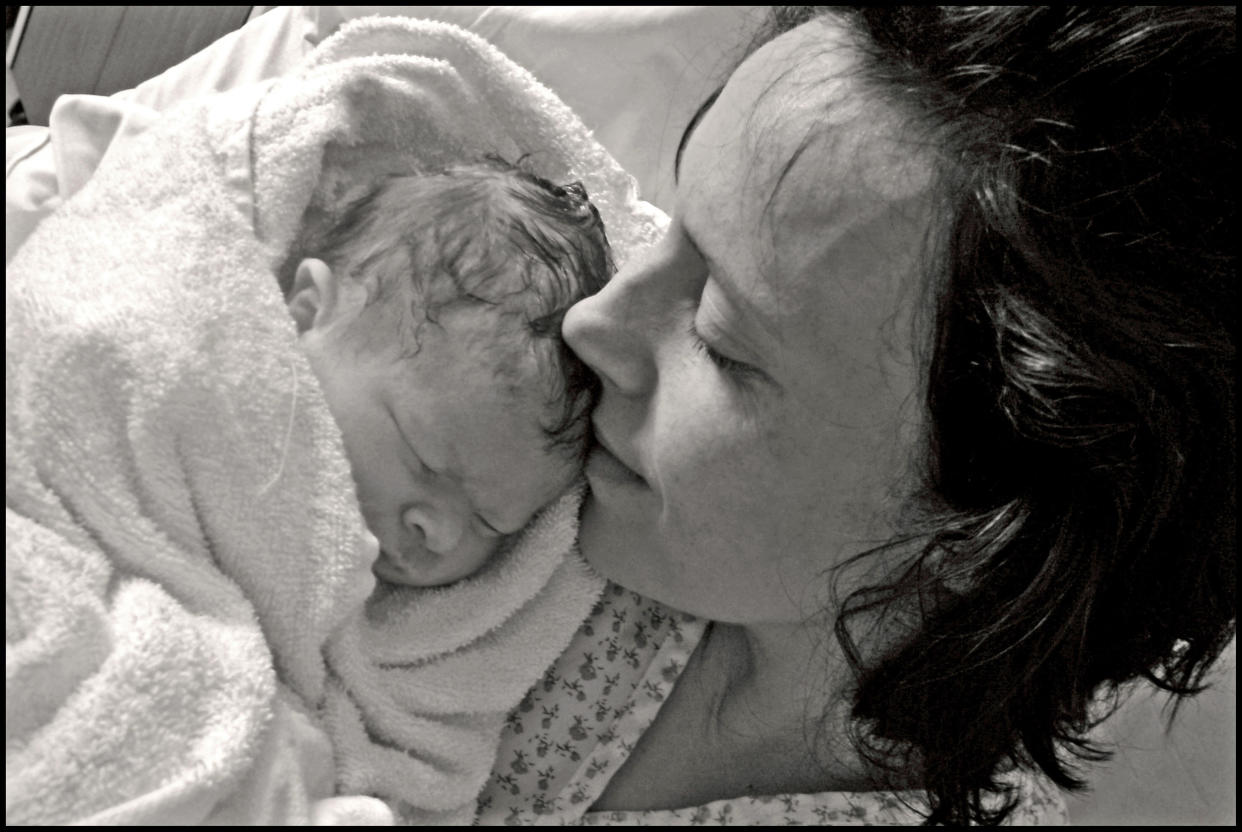NHS' 'biggest maternity scandal' led to the death of over 40 mothers and babies

Hospital failings led to the death of more than 40 mothers and babies in what is believed to be the NHS' biggest maternity scandal.
The government ordered an independent inquiry into the Shrewsbury and Telford Hospital NHS Trust in July 2017 after a string of alarming incidents, dating back as far as 1979.
READ MORE: Seven in 10 hospital trusts in the UK fail to meet safety standards
The interim report, seen by PA news agency, suggests a “toxic” culture lasting 40 years caused a number of avoidable deaths.
Insensitive staff also reportedly called dead babies by the wrong name, with one referring to a deceased newborn as “it”.
One set of parents were even told their baby’s body was left to decompose so long at the post-mortem examination, they were unable to say goodbye.
The inquiry, led by maternity expert Donna Ockenden, was launched by former health secretary Jeremy Hunt.
It initially aimed to examine 23 cases, but grew to more than 270.
These included 22 stillbirths, three deaths during pregnancy, 17 baby deaths after birth, the death of three mothers, 47 cases of substandard care, and 51 incidents of cerebral palsy or brain damage due to inadequate treatment.
Communication shortcomings resulted in one father only getting “feedback” about the situation surrounding his daughter’s death when he bumped into a trust employee at Asda.
Failure to monitor a baby’s heartbeat during labour, or look for warning signs in pregnancy, is said to have resulted in some of the youngsters’ deaths.
Staff insensitivity is also apparent, with one family being told they would have to leave if they did not “keep the noise down” following the news of their baby’s passing.
A baby girl's shawl was also lost by staff despite her mother saying she wanted to bury her in it.
READ MORE: NHS running short of dozens of lifesaving medicines
Some of the brain damage cases came about after staff failed to realise, or act upon, signs labour had gone wrong.
Others were due to group B streptococcus (strep) infections or meningitis, both of which are usually treatable.
One baby died from group B strep despite its parents contacting the trust several times voicing their concerns.
Many families “struggled” to get answers on “very serious incidents”, which one parent put down to the trust’s “closed culture” over a fear of being sued.
Some were told “they were the only family” these events had happened to, with “lessons being learned” for the future.
The report states this is “clearly not true”.
It also points the finger at the “misplaced” optimism of the former regulator of the Healthcare Commission - a predecessor to the Care Quality Commission - who maintained maternity services would improve following its interjection in 2007.
The inquiry was launched due to the joint efforts of Rhiannon and Richard Stanton Davies - whose daughter Kate died shortly after birth in 2009 - and Kayleigh and Colin Griffiths - whose daughter Pippa passed away in similar circumstances in 2016.
READ MORE: Who can you trust to take care of the NHS?
Ms Davies told The Independent, which saw the leaked report, the trust's inability to learn from past mistakes “condemned her daughter to death”.
“How has this been tolerated for so long?,” she added. “It is horrific.”
The report’s author Ms Ockenden wrote: “No apology will be sufficient or adequate for families who lost loved ones to avoidable deaths, or whose experience of becoming a parent was blighted by poor care and avoidable harm.
“Many families have described to me how they live on a daily basis with the results of that poor care.”
The report also criticised the trust's slow response in sending over medical records, clinical notes and other documents for the inquiry.
Until now, Morecambe Bay - which saw the avoidable deaths of 11 babies and one mother at Cumbria's Furness General Hospital between 2004 and 2013 - was the worst maternity scandal in the history of the NHS.
Bill Kirkup, who chaired the Morecambe Bay inquiry, told The Independent the interim review made for “ghastly” reading and showed “unmistakeable parallels” with the earlier scandal.
Ms Ockenden said in a statement the report was produced at the request of NHS Improvement and was not meant for publication.
She added families want “one, single, comprehensive independent report covering all known cases of potentially serious concern within maternity services at the trust.
“My independent review team and I are working hard to achieve this.”
Paula Clark, interim chief executive at Shrewsbury and Telford Hospital NHS Trust, said: “On behalf of the trust, I apologise unreservedly to the families who have been affected.
“I would like to reassure all families using our maternity services we have not been waiting for Donna Ockenden's final report before working to improve our services.
“A lot has already been done to address the issues raised by previous cases.
“Our focus is to make our maternity service the safest it can be.
“We still have further to go but are seeing some positive outcomes from the work we have done to date.”


